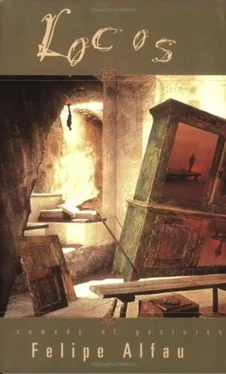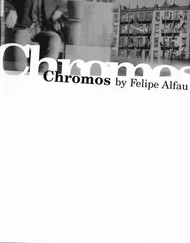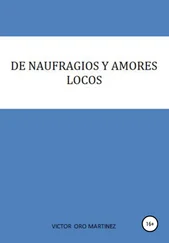Therefore it is not surprising that when the lights went out in Madrid and crooks sprang up everywhere, people should think it a huge joke and want to join in. This, together with the seditious spirit prevalent in Spain which always renders an outlaw far more popular than any supporter of the law, gave such an impetus to this vogue of acquiring other people’s property that many citizens who had been considered most respectable subjects yielded to the temptation and enlisted unofficially in the ranks of imported and domestic evildoers. The idea gained so many followers that in the end no one trusted even the most intimate members of his household, and it came to pass that during the Police Convention of 19—, Madrid had a criminal convention as well.
Of course, the police were bestowing all their efforts and time upon discussing matters of regulation, discipline and now and then how to improve the methods of hunting criminals. Needless to say, the public offered no more cooperation than the most bitter criticism and naturally, after each session, the police representatives and the police force itself had neither time nor energy actually to put a check to the outrages that were going on under their very noses.
Therefore all crooks felt safer and freer to perform their duty in Madrid, where the cream of the police were gathered, than anywhere else. This state of things, and the fact that lights were out and one could not see one’s own hand at night, created too good an opportunity to waste.
I will not mention my personal actions during that week of darkness, but it is rumored that aside from many lost virginities and other unimportant things, some of the magnates (and this is an important point) who were invited to the convention, felt inclined to a bit of instructive amusement after the boring daily sessions. They decided to observe the situation closely, and indulged in an occasional holdup, just to see how it was done.
This is the only explanation of the almost unbelievable fact that during the 19— Police Convention there were more crooks in Madrid than there had been citizens up to that date, that a single victim was held up by more than ten persons at one time, that crooks held up each other and then issued a manifesto protesting because honest people were spoiling their trade, that sometimes a piece of goods would pass from hand to hand until it came as if by magic into the possession of its original owner, and that not a single arrest took place during the week. And this will prove the suppressed emotions and hidden wishes to which a public will give way, under exceptional circumstances and competent guidance.
After this preamble, which the reader may skip without fear of incurring my anger, and which has covered the first half of that week of darkness, remembered by every Madrileño with obvious amusement and subtle regret, on dark Thursday of that memorable week to be exact, Don Benito Calinez, the Prefect of Police, was sunk in a chair at the Casino de Madrid He was a short, fat man, with a short gray beard and a short military mustache. The top of his head was absolutely bald, but in his particular case not shiny.
He sat with his legs apart, his abdomen being in the way, and his hands hung lifelessly over the arms of the chair, bringing his elbows and arms in exact level with the bald part of his head. The stiff bosom of his shirt stood out, pushing his beard upwards, giving him the appearance of a dove in heat, an appearance which contrasted with his dejected expression.
Facing Don Benito, in another chair equally comfortable but more in proportion to its occupant, was another person quite different in appearance. It was a young man, tall (one might judge this from the length of his legs which were stretched in front of him), with abundant hair on his head and a clean-shaven face. There was something in his general demeanor that bore the unmistakable seal of the foreigner (that is, from the viewpoint of a Spaniard). Perhaps it was his shaven face, or his extraordinarily fair complexion; perhaps it was only the pipe he was smoking, a thing which at that time, in Spain, was the privilege of a foreigner, or of a person who desired to be considered a foreigner — hundred percent Spaniards smoked a pipe only when they traveled in a ship, that is, away from Spain.
This young man and Don Benito were seemingly absorbed in the contemplation of a candle that burned between them (the lights were out in the Casino also). Neither of them spoke, the silence in the room where they sat was interrupted only by the distant sound of voices in other rooms and now and then by the voice of a croupier in the gambling hall calling out:
‘‘Hagan juego, señores. no va mas.’’
After a few moments, the young man reached for the candle to relight his pipe but neither he nor the Prefect spoke a single word or made another move.
As I cannot describe any conversation or action, I shall endeavor to set down some thoughts, a bad habit which writers have of trying to convince the readers that they can steal into their characters’ minds. However, I may be exonerated, since my characters fail me in a persistent way and refuse to talk or even move and I cannot very well leave a blank space.
Candlelight for almost a whole week was getting on Don Benito’s nerves. He felt an utter wreck as he had been a central figure and the bull’s eye of criticism for the last few days. He was enjoying one of those splitting headaches that threaten to become chronic. That shimmering flame that hypnotized him was as torturing as a string of needles boring through his eyes. As a matter of fact the Prefect had always abhorred candlelight and he was only able to tolerate it in La Danza de la Pulga. [6]
When the young man picked up the candle, Don Benito was about to tell him to blow it out, but then he cast a suspicious look about him, which included the young man, and he gave up the idea. His nerves were on edge after the happenings of the past few days.
The Prefect had had a terrible day. Again I will exercise the privilege of stealing into a character’s mind.
Don Benito thought:
The night before, there had been robberies in number comparable only to astronomical figures.
The next day, several people had been found naked, tied to the trees in front of the botanical gardens. Why that spot had been chosen was a thing that puzzled the Prefect beyond description.
That morning his desk had been flooded with an endless stream of letters.
Don Benito remembered:
Letters of complaint.
Insulting letters.
Letters of reproach.
Letters in which several people accused each other and cast suspicion on the rest of the population.
Letters of mockery.
Letters saying that the police of Madrid were a bunch of good-for-nothings and grafters, a bunch of mandrias .
Letters calling him a jackass point-blank.
Letters insinuating all the things which open accusations had neglected to mention.
All of them anonymous letters, except one signed with a woman’s name and very heavily scented, the contents of which might pass in Spanish, but in English would never do.
And Don Benito had resented this letter more than anything else.
After all, was he to blame because the lights were out? Could any other Prefect have handled better this public of Madrid that took to a new vogue, like a child to a new toy? Was the public offering any cooperation whatever? No, electricity was not his business. Any Prefect who was not a sound Madrileño would have gone crazy with such a people. The public was hindering his actions as heroically as possible. Everything was against him, he could not possibly place the whole population under arrest. He could not put a single person under arrest without being considered unjust.
Читать дальше












